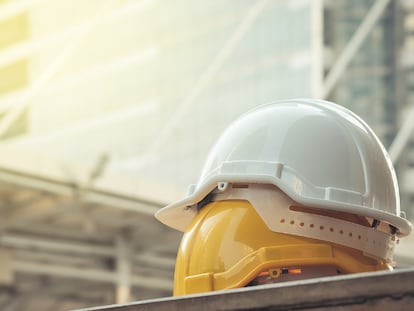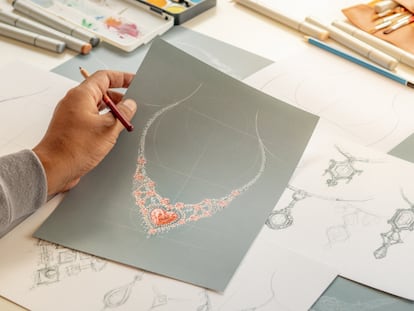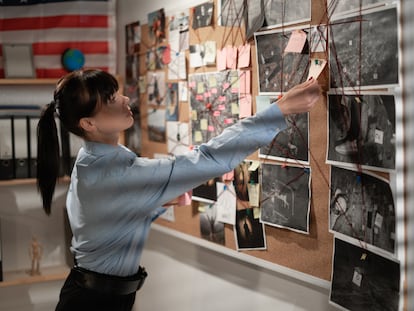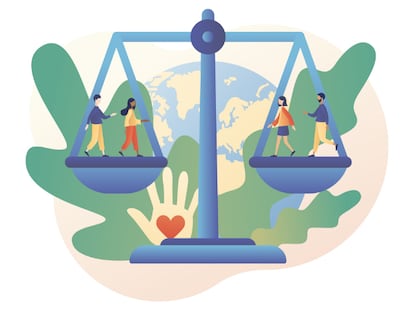Cable sobre la situación de Argelia
El embajador de EE UU analiza, ante la entrada en 2008, la coyuntura de un régimen que considera enfermo y frágil
| ID: | 135031 |
| Date: | 2007-12-19 12:06:00 |
| Origin: | 07ALGIERS1806 |
| Source: | Embassy Algiers |
| Classification: | SECRET |
| Dunno: | 07ALGIERS1237 07ALGIERS1618 07ALGIERS1658 07ALGIERS1704 |
| Destination: | VZCZCXRO5580 PP RUEHTRO DE RUEHAS #1806/01 3531206 ZNY SSSSS ZZH P 191206Z DEC 07 FM AMEMBASSY ALGIERS TO RUEHC/SECSTATE WASHDC PRIORITY 5022 INFO RUEHFR/AMEMBASSY PARIS 2467 RUEHMD/AMEMBASSY MADRID 8733 RUEHRB/AMEMBASSY RABAT 2078 RUEHTU/AMEMBASSY TUNIS 6935 RUEHTRO/AMEMBASSY TRIPOLI RUEHNK/AMEMBASSY NOUAKCHOTT 6149 RUEHNM/AMEMBASSY NIAMEY 1403 RUEHBP/AMEMBASSY BAMAKO 0353 RUEHCL/AMCONSUL CASABLANCA 3182 RHMFISS/HQ USEUCOM VAIHINGEN GE |
S E C R E T SECTION 01 OF 04 ALGIERS 001806 SIPDIS SIPDIS E.O. 12958: DECL: 12/17/2027 TAGS: PINS, PGOV, AG SUBJECT: AN AILING AND FRAGILE ALGERIAN REGIME DRIFTS INTO 2008 REF: A. ALGIERS 1704 B. ALGIERS 1618 C. ALGIERS 1237 D. ALGIERS 1658 Classified By: Ambassador Robert Ford; reasons 1.4 (b) and (d). 1. (C) SUMMARY: Recent discussions with former government officials, long-term opposition leaders and journalists paint a picture of an Algerian regime that is fragile in ways it has not been before, plagued by a lack of vision, unprecedented levels of corruption and rumblings of division within the military rank and file. Our Algerian contacts are often a grumpy lot, but we now hear more than the ordinary amount of concern about the GOA's inability or unwillingness to address political, economic and security problems. The December 11 suicide bombings in Algiers, carried out by two men amnestied under the Charter for Peace and National Reconciliation, have ignited heated debate about the ability of President Bouteflika's reconciliation program to protect the country. The debate pits proponents of an urgent and aggressive approach to the terrorist threat against those aligned with Bouteflika who still believe that amnesty has a role to play. The picture of an isolated president, a stagnant reform process and an uncertain approach towards terror comes at a time when efforts within the government to engineer a third term for Bouteflika are gathering steam. We do not sense an explosion coming right away. Instead, we see a government drifting and groping for a way forward. END SUMMARY. SHIP OF STATE ADRIFT -------------------- 2. (C) On December 3, opposition Rally for Culture and Democracy (RCD) leader Said Sadi presented a somber overview of the Algerian regime, saying it insisted on continued control but lacked vision and capacity. Sadi warned that in the context of current stagnation in economic and political reform, Algeria's institutions were corroding from within, losing many of their best cadres of workers and civil servants. The former leader of the Islamist al-Islah party, Abdallah Djaballah, who was ousted from the party's leadership with active help from the Interior Ministry, pointed out to us on December 17 that the harraga phenomenon (ref A), in which youth flee on makeshift crafts to Europe, was no longer limited only to poor, unemployed youth. Djaballah viewed Algerian youth as having a choice "between death at sea and a slow, gradual death at home" given the profound lack of opportunities in the country's stagnant economy. Sadi told us he was shocked to find so many educated, middle-class Algerians in Quebec and parts of the U.S. on a recent visit. "Those people are the future of Algeria," Sadi said. 3. (C) XXXXXXXXXXXX, told us December 17 that when it came to national reconciliation, the December 11 bombings had polarized the debate within the Algerian security services, with an increasing number of voices favoring a tougher approach. XXXXXXXXXXXX said that the regime had no single, clear approach to fighting terror, a fact proven by its indecisiveness on how to handle high-profile amnesty cases such as that of Hassan Hattab (ref B). According to Sadi and XXXXXXXXXXXX ordinary Algerians, who have already lost confidence in the economic and political reform agenda, are now losing faith in the ability of the regime to protect them. Laila Aslaoui, a former minister, women's rights activist and writer, told Ambassador at dinner December 18 that much of Algerian society was demobilizing against the terror threat. It was scandalous that the Interior Ministry knew the Supreme Court was a target and did nothing to improve the building's security or warn the public, she claimed. She was caustic about the Interior Minister's comment that it was impossible to provide complete protection against bomb attacks, wondering why the GOA does not more vigorously pursue terrorist suspects. The GOA had asked Ms. Aslaoui on December 17 to help organize a march condemning terrorism. In the 1990s, she said she would not have hesitated. Now, she remarked bitterly, she would do nothing that helps the Algerian government justify its approach to security. XXXXXXXXXXXX XXXXXXXXXXXX XXXXXXXXXXXX, told Ambassador December 17 that there is a growing gap between what ordinary Algerians see as their key needs and what they perceive the government is offering in terms of wages and quality of life. As a result, he said, fewer Algerians are willing to help the government. The word on the street, he said, is that if you have to do business in a government office, go but then leave promptly and stay out of the way. 4. (C) On the other hand, Djaballah told us that widespread disenchantment about the government's willingness to share power with Islamists ultimately prompted Algerian Islamists to heed calls by his and other Islamist parties to boycott the November 29 local elections. They understand, he said, that the new electoral law (ref C) was designed to marginalize them and perpetuate the ruling coalition's grip on power. Closing out political space will merely spur more extremism, he warned. The Ambassador told Djaballah that the U.S. favors political liberalization in Algeria but we also understand that this may have to be done gradually. The U.S. does not want to see a return to the violence of the 1990s and is working with the GOA against those who actively seek it. He welcomed Djaballah's effort to play in the legal political system. The important point, the Ambassador underlined, is that while political evolution might be slow it needs to be in a steady direction of liberalization. Djaballah accepted the point and appreciated our having raised election process problems with the GOA. A RULING "GANG FROM TIKRIT" --------------------------- 5. (C) Commenting on the stability of the country, XXXXXXXXXXXX stressed that Algerians "have been through far worse than this," and that internal divisions should not be mistaken for instability. The regime, XXXXXXXXXXXX pointed out, values stability above all else, and is consequently both fragile and stable at the same time. XXXXXXXXXXXX agreed with an analogy made by Sadi both to us and publicly in the press, comparing the Bouteflika government to "a gang from Tikrit" in which a disproportionate number of cabinet ministers and generals came from the same region in the western province of Tlemcen as President Bouteflika. (Indeed, many in the inner circle come from the small town of Nedrumah.) The loyalty of this "gang," according to XXXXXXXXXXXX and Sadi, is key to maintaining stability, just as it did in Saddamn Hussein's Iraq. SADI: "STAND UP FOR OUR YOUTH" ------------------------------ 6. (C) Sadi warned of the long-term dangers of the U.S. remaining silent on what he perceived as the deterioration of Algerian democracy, as evidenced by the local elections. In Sadi's view, outside support is critical to the survival of democracy and the productive engagement of Algerian youth -- 70 percent of the population -- in political and economic life. If the U.S. is seen to be complicit in meaningless elections and the process of amending the constitution to allow Bouteflika to run for a third term, he warned, it risks losing the youth demographic for the future. 7. (C) The Ambassador reminded Sadi of our fruitless efforts to maintain a National Democratic Institute program in Algeria that the Interior Ministry consciously shut down; few political parties had pushed hard to save it. Ambassador told Sadi we had raised on multiple occasions problems with the election process and its credibility. He noted to Sadi that we had heard other parties ask for more public U.S. support, and urged the RCD and other Algerian parties to make their voices heard. The U.S. would be credible in raising obstacles to liberalization only if the Algerian political parties themselves spoke out loudly. Given the absence of an international election monitoring commissions in the 2008 legislative and local elections, the Ambassador advised Sadi to consider sooner rather than later generating public requests for international observers for the 2009 presidential elections. STABILITY IN THE HANDS OF A DIVIDED MILITARY... --------------------------------------------- -- 8. (S) Sadi, who maintains contacts with elements of the ALGIERS 00001806 003 OF 004 Algerian military and security services, told us that the army was no longer as unified as it had been even a few years ago. Two splits were emerging, he said. The first is among younger officers who know Algeria is not well and blame the old guard for neglect and mismanagement. These officers, Sadi said, want change and feel an increasing sense of urgency that the country is adrift. The second split identified by Sadi lies within the senior ranks of the military, between officers who favor a tougher approach to security and counter-terrorism (the "eradicateurs") and those still aligned with Bouteflika's national reconciliation policy. XXXXXXXXXXXX, whose brother is an army officer, said on December 17 that there are colonels in the Algerian military who think the current drift cannot continue. The question, XXXXXXXXXXXX whispered, is whether they can organize themselves. 9. (S) Sadi told us of at least one conversation he has had recently with General Toufik Mediene, the head of Algeria's DRS (military intelligence apparatus) who is widely viewed as the key figure in ensuring regime control and survival. He said Mediene acknowledged that all was not well with the health of Bouteflika and Algeria writ large. However, according to Sadi, Mediene said that he needed some kind of reassurance that any political alternative "would be viable" and, by implication, would not destabilize the country. Sadi said that many senior officers were beginning to wonder if they could get the army out of politics altogether, without fear of public retribution for past abuses during the civil war. ...WHILE CORRUPTION AND OIL PRICES REACH NEW HEIGHTS --------------------------------------------- ------- 10. (S) Sadi, Djaballah, XXXXXXXXXXXX and numerous other contacts have told us that corruption has reached unprecedented levels in the current regime. As we reported in ref D, the ruling FLN party, intent on laying the groundwork for a Bouteflika third term, has sought to install local officials through electoral wrangling based on loyalty even at the expense of competence. With oil prices at record highs, former Finance and Prime Minister Benbitour told Ambassador in November, there was less incentive for the regime to carry out much-needed reforms. High oil prices are bringing incredible wealth into the country, Benbitour told us, but ordinary people are not seeing any impact on their daily lives. (Indeed, Benbitour publicly coined a term we see often in the media now: Algeria is rich, but the people are poor. Islamist leader Djaballah used it with us often on December 17.) Corruption, XXXXXXXXXXXX, has reached epic proportions, even within the military. He cited Lieutenant General Ahmad Gaid Salah, commander of Algerian military forces, as perhaps the most corrupt official in the military apparatus, something other contacts have told us as well. When Sadi mentioned the corruption problem to General Mediene, Sadi said, Mediene acknowledged the problem. Motioning silently to the portrait of Bouteflika that hung over their heads, he indicated to Sadi that the extent of the problem went all the way to the top. (Comment: many embassy contacts think President Bouteflika himself is not particularly corrupt, but they readily finger the President's brothers, Said and Abdallah, as being particularly rapacious. The Algerian military, meanwhile, has launched an anti-corruption program that is ambitious by Algerian standards but has left the senior leadership relatively untouched. End Comment.) COMMENT: AN AILING REGIME, AN AILING PRESIDENT --------------------------------------------- - 11. (S) Our Algerian contacts are often a grumpy lot, but we now hear more than the ordinary amount of concern about the GOA's inability or unwillingness to address political, economic and security problems. The bombings and the debate about how to handle Islamist extremism also are starting to remind of the ferocious arguments within Algerian society during the worst of 1990s violence. These contacts agree that while the 1990s showed most Algerians can withstand lots of pain, the December 11 bombings laid bare the regime's lack of vision and inability to manage the pressures. We are starting to hear echoes of a debate within some circles of the military establishment of an increasingly polarized ALGIERS 00001806 004 OF 004 debate over national reconciliation has become a discussion about the viability of Bouteflika's government itself. According to our contacts, stability remains the top priority even among officials on opposite sides of the debate, although they see stability as flowing not from Bouteflika's leadership but from a military apparatus that appears to realize that the buck stops with them. The new element is the push from Prime Minister Belkhadem and the FLN apparatus, probably with impetus from Bouteflika's brothers if not President Bouteflika himself, to arrange a constitutional amendment and a third term. Sadi, a medical doctor, said that both Bouteflika and Algeria itself were in critical condition and fading. According to Sadi (who may or may not know), Bouteflika suffers from terminal stomach cancer, and the regime lies on the operating table, slipping towards a point of no return as "untrained surgeons" stand by. Meanwhile, the government's seeming inability to jump-start the stagnant economy has Algerians, especially youth, feeling gloomy and grim about the fate of their country as it drifts into the new year. FORD |
Traducción automática. Puede que el texto traducido no sea fiel al original
Tu suscripción se está usando en otro dispositivo
¿Quieres añadir otro usuario a tu suscripción?
Si continúas leyendo en este dispositivo, no se podrá leer en el otro.
FlechaTu suscripción se está usando en otro dispositivo y solo puedes acceder a EL PAÍS desde un dispositivo a la vez.
Si quieres compartir tu cuenta, cambia tu suscripción a la modalidad Premium, así podrás añadir otro usuario. Cada uno accederá con su propia cuenta de email, lo que os permitirá personalizar vuestra experiencia en EL PAÍS.
¿Tienes una suscripción de empresa? Accede aquí para contratar más cuentas.
En el caso de no saber quién está usando tu cuenta, te recomendamos cambiar tu contraseña aquí.
Si decides continuar compartiendo tu cuenta, este mensaje se mostrará en tu dispositivo y en el de la otra persona que está usando tu cuenta de forma indefinida, afectando a tu experiencia de lectura. Puedes consultar aquí los términos y condiciones de la suscripción digital.
























































